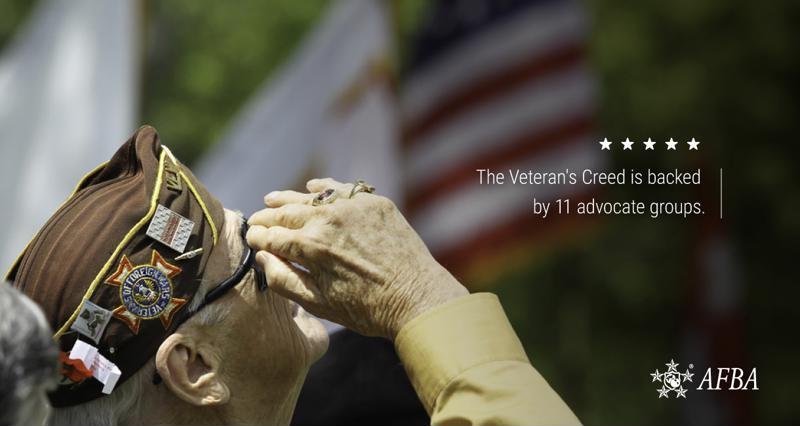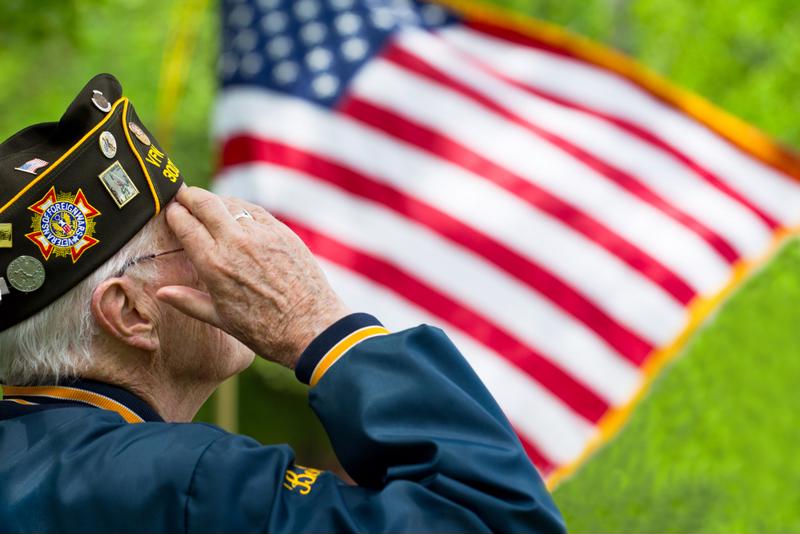Veterans advocates unveiled a new mantra on June 14. Named the Veteran's Creed, it was designed to promote camaraderie and public service among former servicemembers and help them adjust to civilian life.
Many veterans feel disconnected from their communities and their fellow servicemembers after leaving the military. Pew Research found that 27 percent of veterans have a hard time returning to civilian life. That number increases to 44 percent when focusing solely on those who have served since Sept. 11, 2001. Researchers wanted to know why only a certain subset of veterans had such difficulties, so they used a statistical technique called logistical regression to discover six variables that led to difficult reentry, listed below:
- Having an emotionally traumatic experience while serving.
- Suffering a serious service-related injury.
- Serving in a combat zone.
- Knowing someone who was killed or injured.
- Served during the post-9/11 period while married.
- Served during the post-9/11 period and didn't attend religious services after retirement.
This struggle may be part of the reason why approximately 22 veterans commit suicide every day. The Creed will hopefully remind veterans of the good they've done and can do, helping them create communities with one another and better adjust to life outside the military.
"It can serve as a unifying concept to remind veterans of the value of their military service, to inspire veterans to continue to serve and lead at local, state and national levels, and to push them to continue to excel," said retired Gen. George Casey, one of the leaders of the Creed discussions, to Military Times.

Many groups supporting veterans
The Veteran's Creed is backed by several advocate groups, including Veterans of Foreign Wars, Disabled American Veterans, Iraq and Afghanistan Veterans of America, Wounded Warrior Project and The Military Order of the Purple Heart. The latter published a press release noting that each element of the Creed is rooted in military tenets, the missions of the participating organizations and the altruism shared by many veterans. The Creed should also remind American civilians that the values veterans learned while serving (teamwork, integrity, leadership and selfless service) can benefit the entire country.
The Veteran's Creed reads:
- I am an American Veteran.
- I proudly served my country.
- I live the values I learned in the military.
- I continue to serve my community, my country and my fellow veterans.
- I maintain my physical and mental discipline.
- I continue to lead and improve.
- I make a difference.
- I honor and remember my fallen comrades.
Per Military.com, the Creed was officially adopted at a Flag Day event at the Reserve Officers Association. It is the result of many discussions that began last fall at Georgetown University.
"In the Army I lived both the Soldier's Creed and the NCO Creed," John Towles, Director of National Security and Foreign Affairs for the Veterans of Foreign Wars told Military.com. "As veterans, we must realize that our service does not stop simply because we take off the uniform. Many of us struggle to find our place once we leave the military, but now we have a new set of watchwords to guide and remind our brothers and our sisters in arms that our mission is far from over."
While these words may not be enough to prevent every single veteran suicide in future years, they're certainly a good first step toward building community among former servicemembers. Hopefully, with these words in their hearts, veterans will have an easier time transitioning to civilian life.


